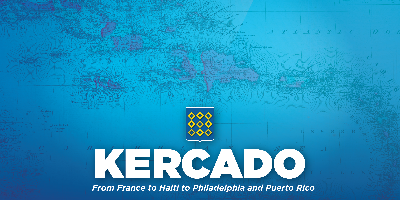Law 53 Gag Law enacted (jun 10, 1948 – jun 10, 1957)
Description:
On May 21, 1948, a bill was introduced before the Puerto Rican Senate which would restrain the rights of the independence and Nationalist movements on the archipelago. The Senate, controlled by the Partido Popular Democrático (PPD) and presided by Luis Muñoz Marín, approved the bill that day.[2] This bill, which resembled the anti-communist Smith Act passed in the United States in 1940, became known as the Ley de la Mordaza (Gag Law) when the U.S.-appointed governor of Puerto Rico, Jesús T. Piñero, signed it into law on June 10, 1948.[3]Under this new law it would be a crime to print, publish, sell, or exhibit any material intended to paralyze or destroy the insular government; or to organize any society, group or assembly of people with a similar destructive intent. It made it illegal to sing a patriotic song, and reinforced the 1898 law that had made it illegal to display the Flag of Puerto Rico, with anyone found guilty of disobeying the law in any way being subject to a sentence of up to ten years imprisonment, a fine of up to US$10,000 (equivalent to $106,000 in 2019), or both.
Law 53 of 1948 better known as the Gag Law, (Spanish: Ley de La Mordaza) was an act enacted by the Puerto Rico legislature[a] of 1948, with the purpose of suppressing the independence movement in Puerto Rico. The act made it a crime to own or display a Puerto Rican flag, to sing a patriotic tune, to speak or write of independence, or to meet with anyone or hold any assembly in favor of Puerto Rican independence. It was passed by a legislature that was overwhelmingly dominated by members of the Popular Democratic Party (PPD), which supported developing an alternative political status for the island. The bill was signed into law on June 10, 1948 by Jesús T. Piñero, the United States-appointed governor. Opponents tried but failed to have the law declared unconstitutional by the United States Supreme Court.
The law remained in force for nine years until 1957, when it was repealed on the basis that it was unconstitutional as protected by freedom of speech within Article II of the Constitution of Puerto Rico and the First Amendment of the Constitution of the United States.
LAW 53 (THE GAG LAW)
Puerto Rico’s Gag Law (Law 53) is enacted to suppress the independence movement in Puerto Rico. The Gag Law makes it a crime to sing a patriotic tune; to speak or write of independence; or to meet with anyone, or hold any assembly, with regard to the political status of Puerto Rico. Anyone found guilty of disobeying this law is sentenced to ten years imprisonment, a fine of $10,000 dollars (US), or both.
Rally in defiance of the Gag Law
The Gag Law also makes it a crime to display or own a Puerto Rican flag – even in one’s own home. This “flag” provision allows police and National Guardsmen to: 1) enter anyone’s home without a warrant, and 2) search and seize all property, regardless of probable cause.
Since all Puerto Ricans were declared U.S. citizens in 1917 (in order to send 18,000 of them to fight in World War I), the Gag Law is in direct violation of the First Amendment of the U.S. Constitution, which guarantees freedom of speech to all U.S. citizens.
Mass arrests for violations of the Gag Law
Despite its constitutional flaws, the Gag Law is politically effective. Fifteen members of the Puerto Rican Nationalist Party are immediately arrested and accused of violating it, and mass arrests are threatened throughout the island.
The Gag Law is repealed in 1957.
https://waragainstallpuertoricans.com/historical-overview/
Added to timeline:
Date:
jun 10, 1948
jun 10, 1957
~ 9 years
